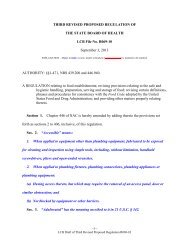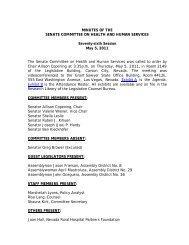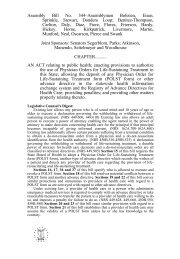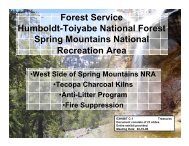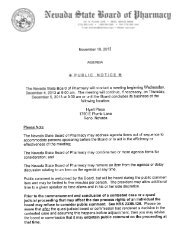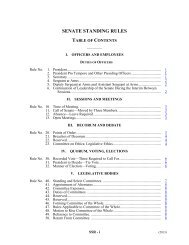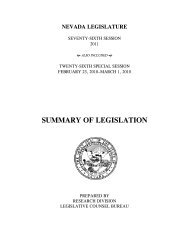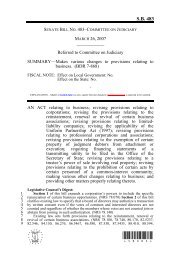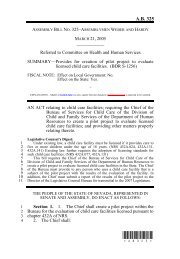Nevada Pre-Kindergarten Standards
Nevada Pre-Kindergarten Standards
Nevada Pre-Kindergarten Standards
You also want an ePaper? Increase the reach of your titles
YUMPU automatically turns print PDFs into web optimized ePapers that Google loves.
Content Standard H1: People, Cultures, and Civilizations<br />
Indicator H=History<br />
H1.PK.1 Children begin to complete simple tasks together.<br />
H1.K.1 Discuss the importance of working together<br />
to complete tasks.<br />
H1.PK.2 Be exposed to stories of family members, local<br />
residents, and prominent figures.<br />
H1.K.2 Listen to stories of family members, local residents,<br />
and prominent figures to highlight the human experience.<br />
H1.PK.3 Share information about their family practices,<br />
customs, and culture<br />
H1.K.3 Listen to stories of people and families<br />
around the world.<br />
Content Standard H2: Nation Building & Development<br />
Indicator H=History<br />
H2.PK.1 Begin to recognize that problems can occur in groups.<br />
H2.K.1 Identify problems that occur when people live and<br />
work together.<br />
Content Standard H3: Social Responsibility & Change<br />
Indicator H=History<br />
H3.PK.1 Begin to understand that differences exist between<br />
home and school.<br />
H3.K.1 Recognize differences between home and school.<br />
Social Studies/Social Emotional<br />
<strong>Pre</strong>-<strong>Kindergarten</strong> <strong>Standards</strong>: Social Studies/Social Emotional<br />
Examples: Children will/may...<br />
Work together to complete a task (e.g.,<br />
cleaning up the classroom or working on a<br />
project together).<br />
Begin to become familiar with diverse family<br />
practices, customs and cultures.<br />
Be aware of some local and community<br />
people and events.<br />
Want to share information about their family<br />
practices, customs, and culture.<br />
Bring in materials to share with the class<br />
about their family’s culture.<br />
Examples: Children will/may...<br />
Understand that conflicts happen<br />
between people.<br />
Be able to discuss the reason<br />
behind conflicts.<br />
Examples: Children will/may...<br />
Understand that there are different rules<br />
and expectations for school and home.<br />
Discuss and understand how important it is<br />
to work together.<br />
Supportive Practice: Practitioner/Adult will…<br />
Discuss characters in books, talk about<br />
feelings of the characters, similarities and<br />
differences in appearances, etc.,<br />
Read books and listen to music that<br />
represents a variety of cultures and<br />
traditions.<br />
Model kindness and caring for all people.<br />
Invite community members or other<br />
speakers to share their culture with the<br />
children.<br />
Provide children with opportunities to<br />
experience other cultures through speakers,<br />
activities, music, books, and food.<br />
Supportive Practice: Practitioner/Adult will…<br />
Model kindness and caring for all people.<br />
Provide children with opportunities to<br />
solve problems through discussion and<br />
other appropriate techniques.<br />
Supportive Practice: Practitioner/Adult will…<br />
Provide children with opportunities to<br />
discuss and understand differences<br />
between home and school (e.g., rules, food,<br />
and nap time).<br />
43



